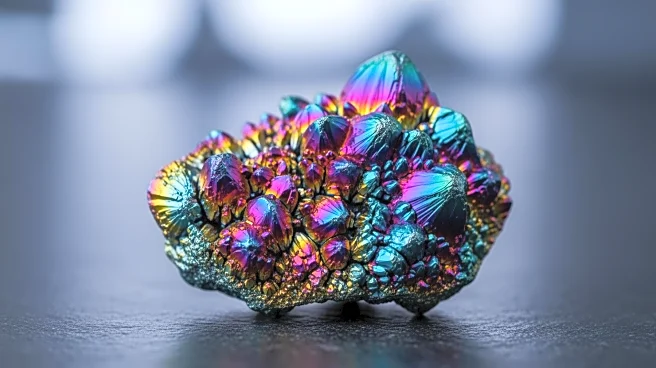What's Happening?
Europe is heavily reliant on China for rare earth elements, which are crucial for strategic industries such as automotive, green energy, and defense. Despite having potential deposits, Europe faces barriers to developing its own rare earth supply chains.
China's dominance in the rare earth market, from mining to refining, makes global supply chains vulnerable to disruptions. Recent export controls and licensing requirements imposed by China have highlighted these vulnerabilities, prompting European officials to seek alternative sources and engage in talks with China to mitigate risks.
Why It's Important?
The dependence on China for rare earths poses significant risks to Europe's strategic industries, impacting climate targets and economic resilience. Shortages of rare earths could slow semiconductor fabrication, AI development, and wind-power installation, hindering Europe's ability to build a green and digital future. The geopolitical tensions surrounding rare earth supplies underscore the need for Europe to develop its own supply chains and reduce reliance on China to ensure stability and security in critical sectors.
What's Next?
Europe is likely to continue exploring alternative sources of rare earths and invest in developing its own supply chains to reduce dependency on China. The ongoing talks between European officials and China may lead to temporary relief from export controls, but long-term solutions will require strategic investments and policy changes. As Europe seeks to enhance its supply chain resilience, collaboration with other regions and countries may become increasingly important.














